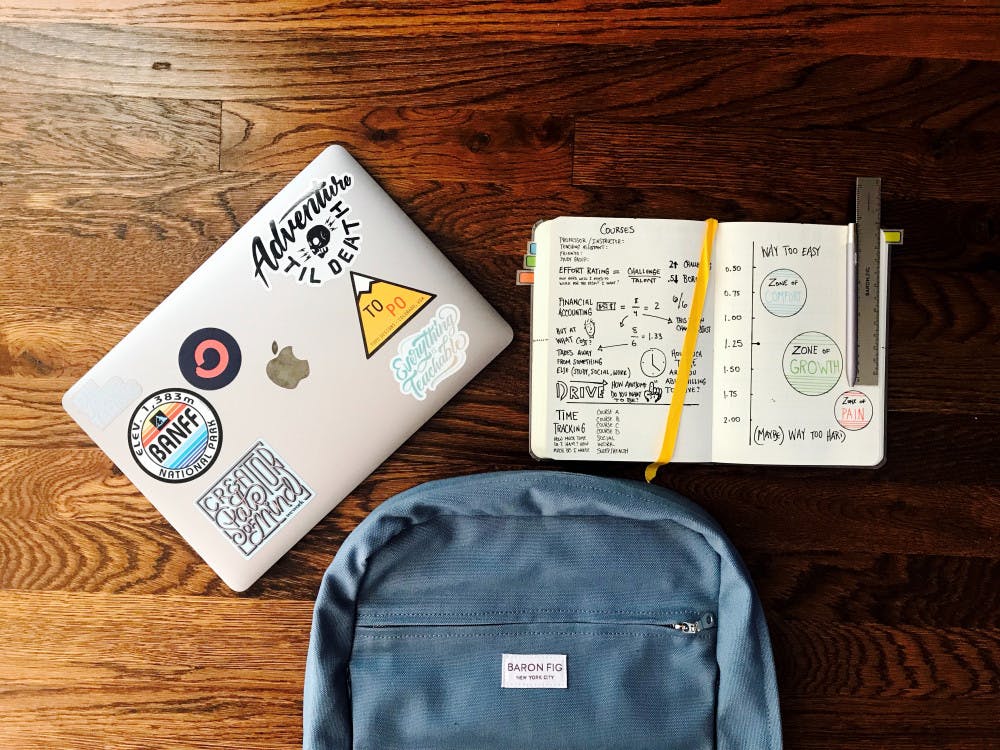The new Fall semester is upon us. Whether you’ve already been here for Summer or are coming back from break, there are lots of different factors you might need to adjust to, such as a new schedule, a new dorm or apartment or a new bus routes. To help ease the transition, here are some tips to help you transition smoothly to Fall.
Rehearse your new schedule. With the new semester comes new classes, and there’s a good chance those new classes are in different buildings and locations than your previous classes. So before classes start, go over your route. Figure out where your classes are in relation to one another, and if they’re far apart, which buses you’ll need. Then walk or ride that route as if you were going to class, keeping track of how long it takes so you know how much time you’ll need. Not only will this acquaint you with your surroundings, but if you figure out you don’t have enough time between classes, you can plan for that now, such as leaving your class early, getting a bike or scooter, or even dropping a class (although I would strongly recommend against the latter in most cases, as it could be difficult to find a replacement class at the last minute).
Get to know your professors. If you want to get ahead and make a strong impression, get to know your professors before the first day of class. Send them an email introducing yourself and asking any questions about the class you might have. You can even ask about their office hours if you want to meet them in person. While making connections with a professor won’t automatically make you an A+ student, it will have a variety of other benefits, such as research or mentorship opportunities, advice about the industry, and depending on the professor, chances for extra credit or other help if you’re falling behind. In my experience, professors are always willing to help their students, so don’t be afraid to ask!
Get organized. Organization will help you be ready to go as soon as the semester starts. Organization could encompass many things, such as getting your textbooks and other class materials ahead of time, creating a folder or binder for each of your classes, or creating a system for storing your papers (physically or digitally). While you can get organized at any time, the longer you wait, the harder it will be, as not only will you have more things to organize, but you’ll have to balance time spent organizing with time spent on things like assignments and classes. Best to get organized before classes start while you still have time.
Get in the right mental state. They say “confidence is key”, and school is no exception. If you feel nervous and stressed going in there’s a good chance you’ll stay nervous and stressed once you arrive. Instead, relax and focus on the positives. What are the upsides to going back to school? Why did you choose UF in the first place? Are you exaggerating the downsides? If you’re confident and eager going into the Fall semester, it won’t guarantee success, but it will make things a lot easier if you go into with the right attitude.
Last, I would like to close this article by saying that if you still need help adjusting to the Fall semester, there are plenty of resources to assist you. If you’re feeling anxious and you’re not sure you can do it, the Counseling and Wellness Center (CWC) can help. If you’re in a hard class and having trouble with the material, the UF Teaching Center is there to lend a hand. Each college or department also offers academic advising, and the Student Financial Affairs office is available to help with any issues relating to financial aid, scholarships or loans.
While this isn’t a one-size-fits-all manual for college success, I hope this article helped put you on the right track this semester. Good luck this Fall, and Go Gators!
Jason Zappulla is a UF history senior. His column appears on Tuesdays.
Photo by Matt Ragland on Unsplash






